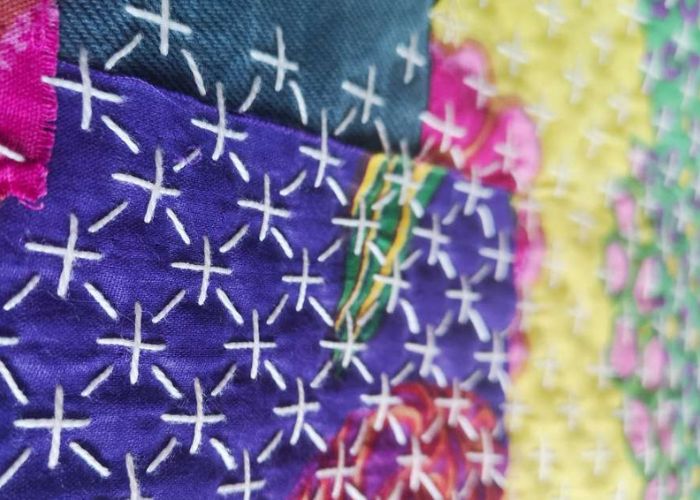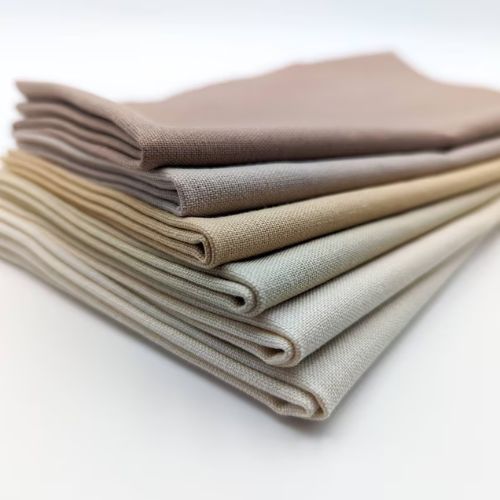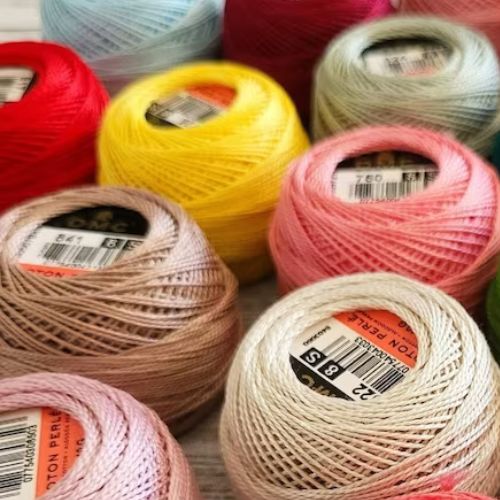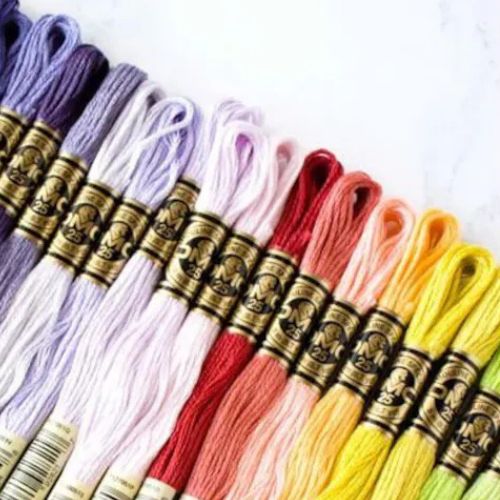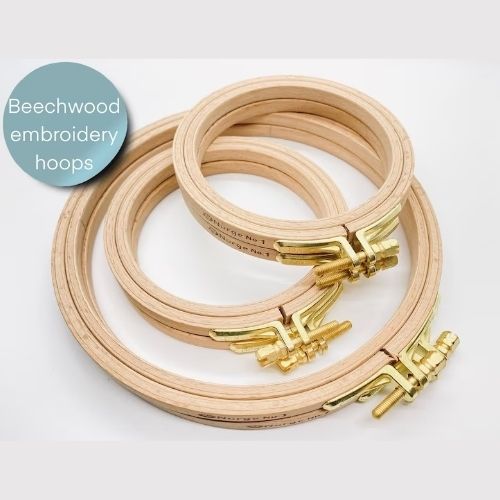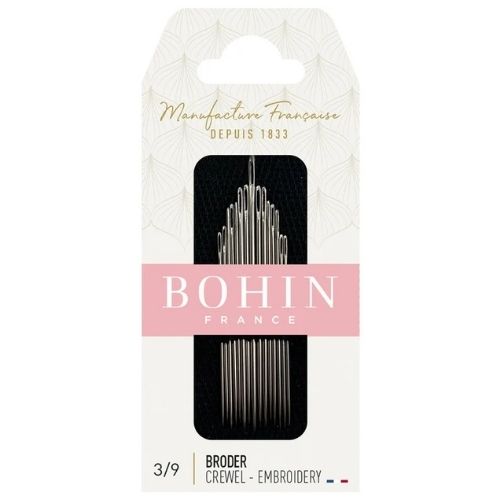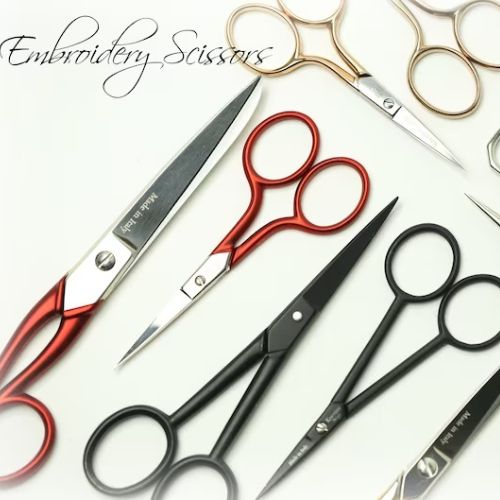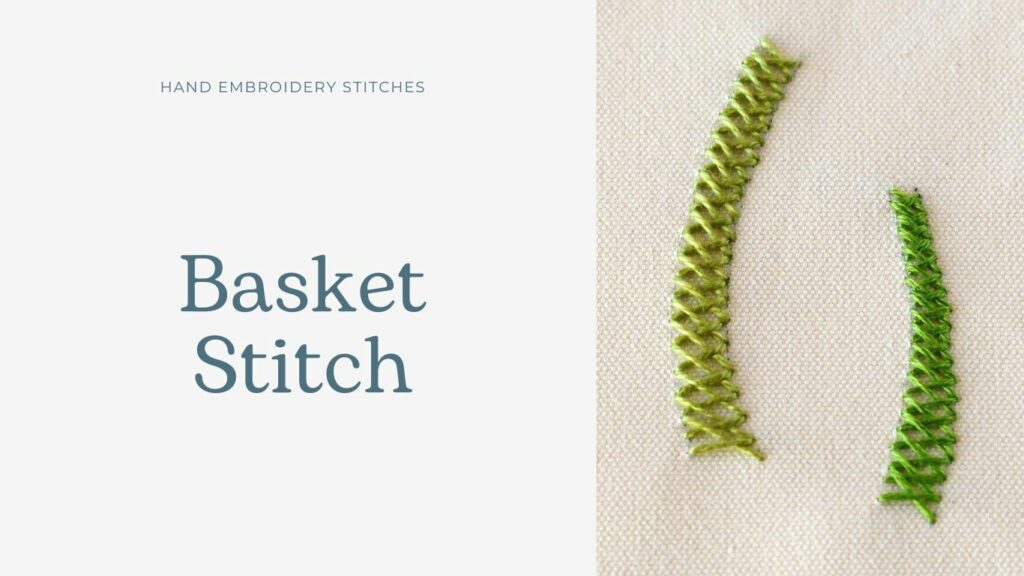
Basket Stitch
A Basket stitch is a decorative hand embroidery stitch for filling. It forms a broad line and can be embroidered on counted and not counted fabrics. On the front side, interlacing diagonal threads form the stitch’s weaved surface. On the back side, the stitch looks like a row of doubled parallel stitches.
If you want a woven surface of the stitch to stand out, choose twisted, non-divisible threads like pearl cotton. If you embroider the Basket stitch with embroidery floss, the weaved effect of the surface will be less visible.
You can see the difference in the surface in my sampler. I stitched a top row with perle cotton and the bottom row – with three strands of embroidery floss.
Visually, the Basket stitch looks similar to the Herringbone stitch but is not the same. The embroidery technique of these stitches is different. The method of the Basket stitch embroidery is similar to the Fishbone stitch.
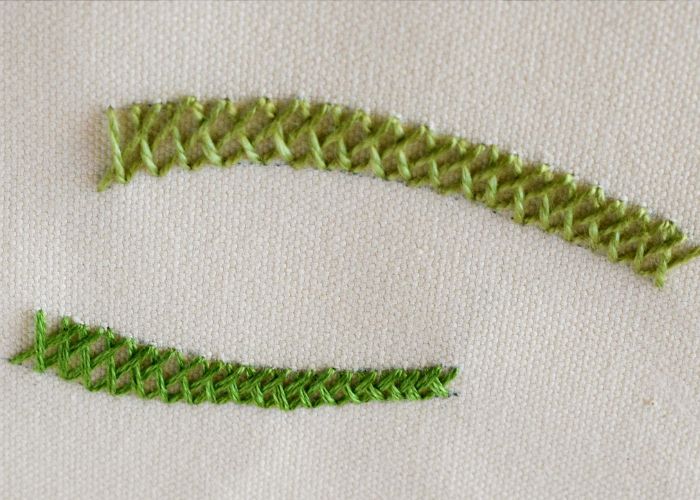
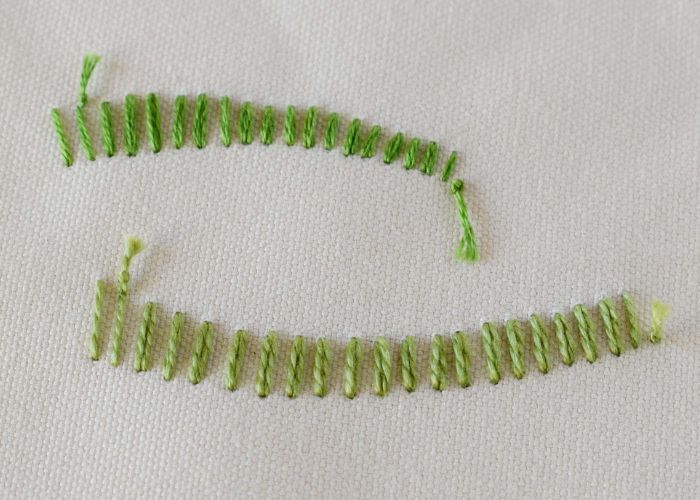
Applications of the Basket stitch
This hand embroidery stitch has a very decorative surface texture and takes curves well. Also, you can adjust the width of the line as you embroider. For these reasons, it is often used in botanical embroidery – to depict wider stems and vines.
Besides embroidering plants and greenery, you can use this decorative embroidery technique for borders, structural filling, or lettering.
More stitches from the Fishbone stitch family
- Raised Fishbon Stitch
- Fishbone Stitch
- Flat stitch
- Star stitch
Learn how to embroider Basket stitch
Follow the step-by-step tutorial with detailed photos below, and you will learn the Basket stitch quickly. If you are a visual learner, watch a video lesson in the tutorial or on the Practical Embroidery YouTube channel to learn this hand embroidery stitch faster.
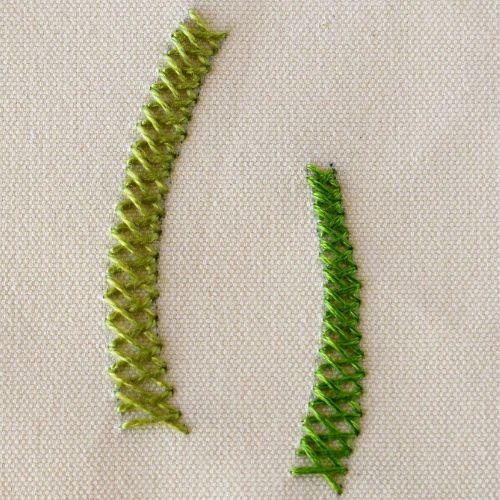
How to embroider Basket Stitch
Step-by-step hand embroidery tutorial
Instructions
1. Mark two lines defining the line you want to embroider on the fabric. Make a knot and take the needle up on the left top corner of the figure.
2. Make a diagonal stitch to the right and down. Pull the thread to the back of the fabric.
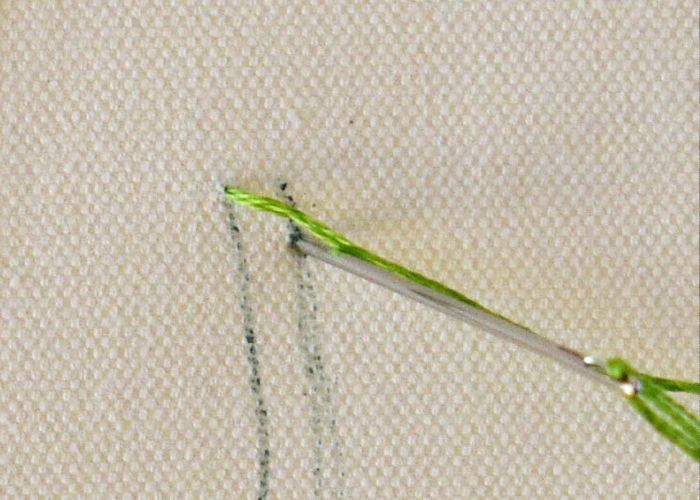
3. Take the needle up on the left side, directly opposite to the point where the last stitch ended. Pull all the thread to the surface.
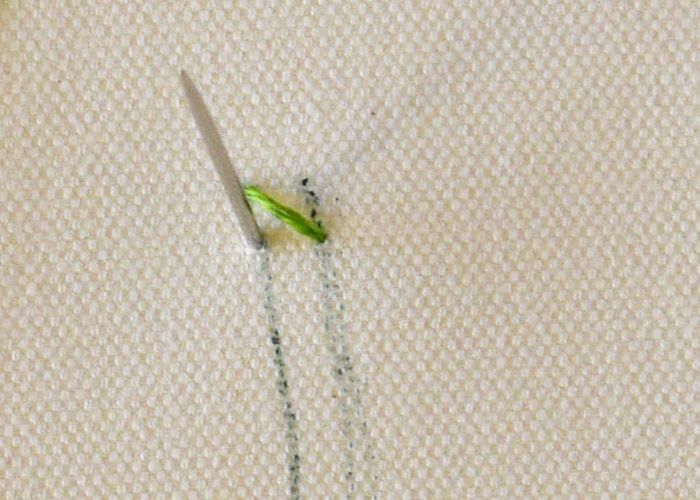
4. Make a diagonal stitch to the right. Push the needle down in the middle between the starting point of the figure and the last stitch. Pull the thread to the back of the fabric.
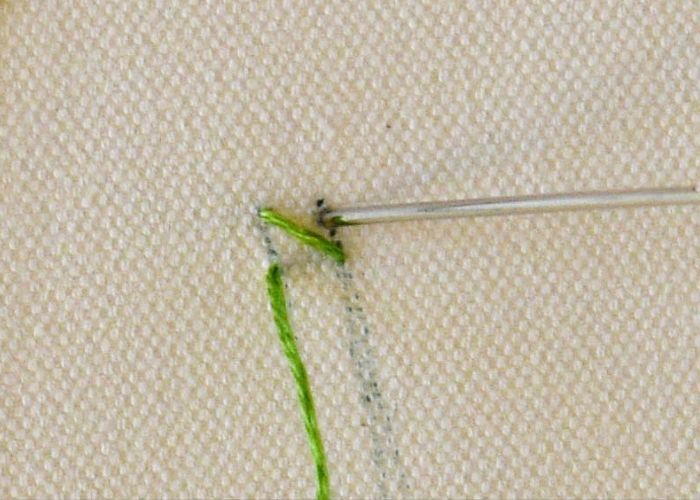
5. Take the needle up to the surface on the left mark between the last two stitches. Pull the thread up.
6. Now, make a diagonal stitch to the right. It has to be parallel to the previous stitch you made. Push the needle down and pull all the thread to the back of the fabric.
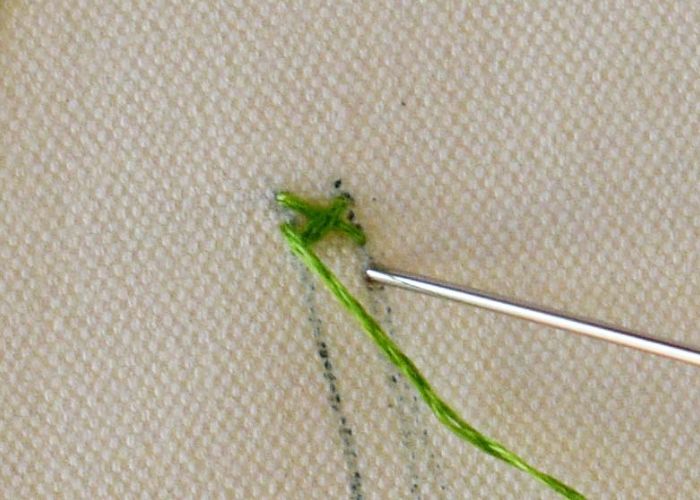
7. Take the needle up on the left side, directly opposite to the point where the last stitch ended. Pull all the thread to the surface.
8. From here, you will repeat the sequence of the stitches and use the holes of the previous stitches as the guides for the following stitches.
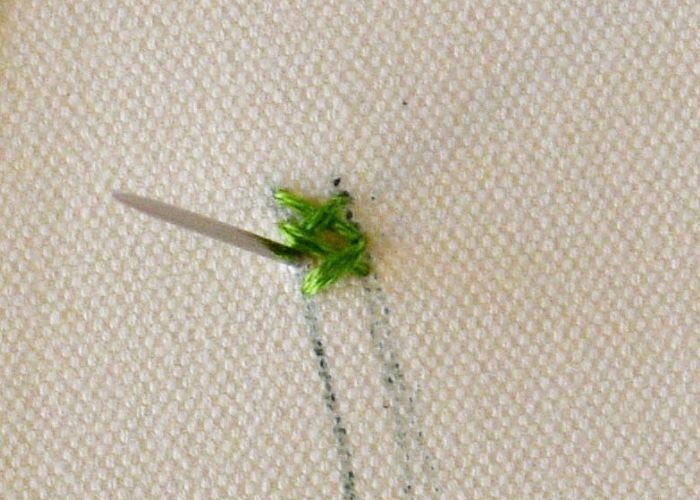
Video tutorial
Tools and materials I used for this sampler
Disclaimer. To cover the cost of creating free embroidery patterns and video tutorials for this blog, I do sometimes link to products. Please assume these links are affiliate links. If you choose to buy through my links then THANK YOU – it will make it possible for me to keep doing this.
What’s next?
If you’re in the mood to explore more hand embroidery stitches, check out the Stitches and Techniques page for the list of other fantastic stitches available on my blog. From timeless classics to modern twists, a whole world of stitches is waiting for you to explore and master. So, grab your hoop and needle, and let’s stitch our way to creative bliss!
Don’t miss a thing!
Follow me on YouTube, Instagram, Facebook, and Pinterest. Or why not subscribe to Practical Embroidery newsletter and get embroidery tips straight to your inbox every few weeks?
Need More Guidance?
The top 10 hand embroidery stitches to learn is a free online course created for beginners.
